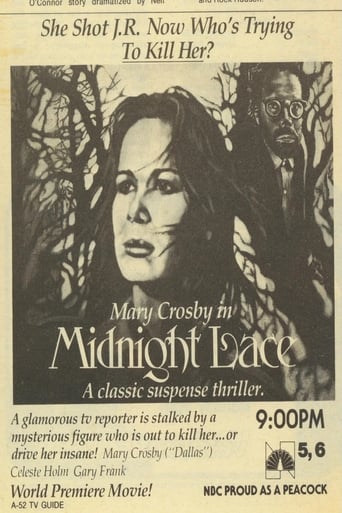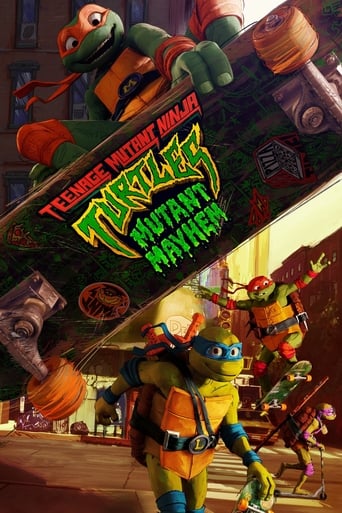Best movies like Jedenácté přikázání
A unique, carefully handpicked, selection of the best movies like Jedenácté přikázání Starring Hugo Haas, Jiřina Štěpničková, Theodor Pištěk, Milada Gampeová, and more. If you liked Jedenácté přikázání then you may also like: Warriors of Faith, Normal, Sestricky, The Junk Shop, Camel Through The Eye Of A Needle and many more popular movies featured on this list. You can further filter the list even more or get a random selection from the list of similar movies, to make your selection even easier.
Jedenácté přikázání
You may filter the list of movies on this page for a more refined, personalized selection of movies.
Still not sure what to watch click the recommend buttun below to get a movie recommendation selected from all the movies on this list
Normal
Dreaded serial killer Peter Kurten voluntarily turns himself over to the authorities. A young lawyer, eager to prove Kurten's mental derangement, agrees to defend a man who terrorized Germany between 1929 and 1931. In studying the case and meeting with the intelligent, cold-blooded manipulator, the young idealist's values become warped.
The Junk Shop
Juraj Herz adapts Bohumil Hrabal's story about a man who works in a junk shop.
Camel Through The Eye Of A Needle
Slightly ironic comedy of wretches, who come to understand the rich and are able to accept charity, and also about how love and work prevail over the factory owner's son.
Faust
A very free adaptation of Marlowe's 'Doctor Faustus', Goethe's 'Faust' and various other treatments of the old legend of the man who sold his soul to the devil. A nondescript man is lured by a strange map into a sinister puppet theatre, where he finds himself immersed in an indescribably weird version of the play, blending live actors, clay animation and giant puppets.
Dita Saxová
A beautiful, underachieving, 18-year-old orphan considers various suitors, ponders philosophy, and takes a young girl under her wing.
Shades of Fern
Based on the only extensive prose work by the surrealist painter Josef Capek, Shades of Fern most resembles the philosophical fairy tales and fables of Josef’s older brother, the legendary Czech novelist and playwright Karel Capek. Two young poachers, more boys than men, kill a gamekeeper when they are caught illegally hunting. Panicked, they retreat into a forest that grows steadily more forbidding and deadly as their fear for the future—and guilt over their action—mounts. Loosely based on hundreds of oral folk tales and legends that haunt the woods of Czechoslovakia, Vlácil’s contemporary updating artistically underscores the relationship between man and nature, crime and punishment, isolation and society, and guilt and memory.
The Snowdrop Festival
This movie is based on texts of Bohumil Hrabal, world-known Czech prosaic. It's a story (in a form of a mosaic of short episodes and pictures) about the sadness and happiness of inhabitants of Kersko (Kersko is a small woody area full of cottages and roods). These people are both simple and sensitive, they have their own pleasures (e.g. Leli is a collector of cheap, but inutile things) and the greatest delight of all of them is a hunting. Crude poetics of amateur hunting is screened by dreamy pictures of this area. Menzel mixes sentimental lyricism and rough (but not vulgar!) humor and the outcome is the never-ending landscape of continuous life in the proximate nearness of nature. The performances of actors are brilliant. Both Rudolf Hrusinsky as a Franz and Jaromír Hanzlik as a Leli have nonrecurring charm bottomed on a pain and inebriation. Only the music is not perfect: Jiri Sust usually assembled his film music from his older works and in this movie there is many quotations.
Tonka of the Gallows
A prostitute in an act of pity is keeping chaste company with a condemned man through the night before he is to be hung.
Scalpel, Please
A psychological drama exploring the notion of the doctor as a moral authority, who within the framework of their everyday work must face questions of life and death. The film is adapted from a novel by Valja Stýblová, in which the author draws upon her personal experiences as a former neurosurgeon. The protagonist of this drama is an ageing professor, based at a Prague neurological clinic, who is haunted by issues concerning his own principles and values, and also by the case of a young patient, Víťa, afflicted with an inoperable tumour.
On a Wayward Princess
Princess Julia doesn't want to marry an old prince Hubert so she runs away from home. She meets two old magicians and join the circus, where she meets lovely Franta Kuldan and evil devil performer.
Old Czech Legends
A monumental piece of art bringing the heroes of the ancient Czech myths back to life. The picture consists of seven parts: Cech the Forefather, Bivoj, Libuse, Premysl, Girls War, Horymir, Lucka War.
Midnight Lace
A TV reporter is mercilessly stalked by a mysterious assassin in this remake of the 1960 Doris Day thriller.
Private Torment
A worker steals bits and pieces of building materials from work to construct a new home for himself and his girlfriend. When he discovers that she’s having an affair with his boss, he devises one elaborate plot after another to murder the rival, each time with pathetic results.
The Beggar's Opera
Unlike any other opera, the so-called Beggar's Opera is not just one composition, but a lineage of adapted compositions, beginning with the original hugely successful 1728 political satire written by Englishman John Gay. Composers and writers have penned variations on it ever since. The most famous of these was A Threepenny Opera by Bertholt Brecht and Kurt Weill. Some things these compositions share in common is their setting among the poor and criminal classes, and the roguish character Macheath. This production is based on an adaptation of Gay's original by Vaclav Havel the freedom-fighter, writer and philosopher who became the first (and only) president of the united post-communist country of Czechoslovakia, and it retains many traces of its theatrical origins. Film reviewers were not too tolerant of what they called "slavish adherence" to the noted Czech writer's stage production, but theater, philosophy and history buffs may feel otherwise.
The Tank Battalion
Tankový prapor (Tank Battalion) is a Czech comedy film. It was released in 1991. The movie represented the first privately produced movie in Czech Republic. It was a blockbuster. Today, the movie is perceived as a classic, it is the most acclaimed movie of his creator, director Vit Olmer, it starred Lukáš Vaculík, a popular star of youth movies in the main role, as well as the by-then well received comedian Miroslav Donutil.
Divá Bára
This is a romantic story about a brave, self-made girl, despised daughter of a shepherd. She is not afraid of anything - neither night nor swimming. But the superstitious villagers are telling weird stories about her and about all sorts of strange things, even her conjunction with the powers of hell.
Magical River
Leopold Kohák married a rich widow a long time ago and now has nothing to do compared to his energetic wife. He's growing old and troubled by the fact that he betrayed his first love Emča and his beloved river Sázava where he spent his childhood and youth. A visit from an old friend Lebeda brings it all back to him. After a nervous breakdown Leopold secretly visits his home instead of going to the spa. A wandering tramp suggest Leopold should bathe in the magical waters of the Sázava, and slowly his youth returns to him.
Dva na koni, jeden na oslu
The musical version of the successful play of Oldřich Daněk was transferred to the screen by director Jiří Sequens in 1986. It takes place in the 14th century in Bohemia during the reign of King Wenceslas IV. Heroes of the story are three mercenaries who always fight on the wrong side and are always beaten, but they are moral winners of all conflicts and skirmishes.
Svatá hříšnice
In the Prague Old Town and the adjoining streets there is always plenty of life. Housewives shop, beggars arouse sympathy, the Salvation Army tries to put the godless on the road to salvation by hymns and sermons, and Ferdys Pistora hunts in the pockets of his fellow men and isn't even put off by the presence of an officer of the law. Ferdys sets off to burgle villa of the banker Rosenstok, but a fire breaks out in the house and Ferdys ends up saving the banker's two small children. For this he is celebrated as a hero and gets a place as an errand boy with the Rosenstoks. At home he is visited by representatives of the Salvation Army, Captain Kosterka and Terezka, with whom Ferdys instantly falls in love.








































Warriors of Faith
Czech history movie.